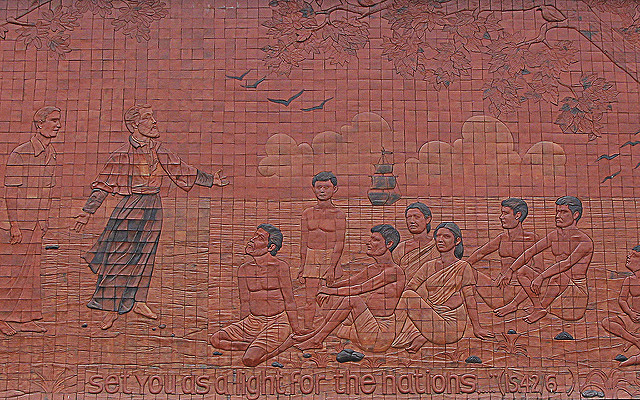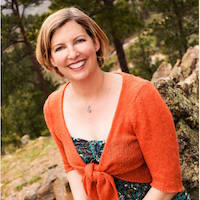
This is the story of my shame.
Once upon a time, I believed there was only one way to God. So I became a missionary and went all over the world telling everyone how to find that one way.
It started back in college when I met some Christian students. They had something I’d never encountered—a vibrant connection with God. Within weeks, I had my own sweet encounter with Jesus. I ecstatically experienced unconditional love from the Divine, and discovered meaning in my life.
Then it got complicated.
I quickly experienced the group-think quality of my new spiritual community. They believed the Bible was the absolute word of God. I fought fiercely against that idea for a little while, but in the warm, persuasive circle of my new friends, my resistance was subtly eroded. And gradually I learned to do a kind of mental gymnastics. When something I read in the Bible or heard from the pastor went against my “knower,” I learned to think it was either because I didn’t understand it or I had sin in my life that was keeping me from seeing the truth.
Therefore, when my knower objected, that meant there was something wrong with me.
Can you say shame-fest in the making?
What is shame? Shame is the thing that tells you you’re inherently bad, and you need to hide your badness. Brené Brown says shame is, “the intensely painful feeling or experience of believing that we are flawed and therefore unworthy of love and belonging.”
Shame said I was bad because my thoughts were different from the group, so I hid my thoughts. Shame said my knower was bad and I wouldn’t be accepted if what my knower sensed didn’t conform to the Bible, so I silenced my knower.
But still, it’s complicated. My church experience wasn’t all bad. In fact, a wonderful, healthy side was also going on at the same time. I was learning authentic spirituality–love for the Divine, faith, prayer, joy, hope––at the same time as I was silencing my own voice. The authentic spiritual connection came in the same package as the stuff I didn’t agree with, and I chose to swallow the bad in order to have the good. Slowly, imperceptibly, my beliefs shifted to line up with the group, reinforced by positive affirmation.
Was I brainwashed? Sometimes it feels like it. But it wasn’t in a cultish way, by one megalomaniac of a group leader. It was just by the steady pressure of a group of loving people who were earnestly seeking a connection with the Divine. Acceptance came via conformity, and I wanted acceptance.
So over time, I took up the belief that Jesus was the only way to God. And that meant people would go to hell if they didn’t follow the one way. There was only one loving conclusion: I needed to tell as many people as possible about Jesus. And because plenty of people here in the U.S. were already pastors and preachers, I had to go to places where people still hadn’t heard of Jesus.
I had no choice: I was called to become a missionary.
On the one hand, I had an arrogant conviction that my denomination had the only truth. And at the same time, the more deeply I connected with the loving heart of the Divine, the more earnestly I wanted to give that gift to others. Then throw in my fascination with travel and seeing the world, and you have a completely mixed bag of motives.
So I spent 13 years being a missionary. I lived a complicated combination of deep spiritual connection and smug self-righteousness that we had the only way to God. On the one hand, there was a wonderful focus within the spiritual community on becoming healed people, because how could we tell people about a loving savior if we didn’t embody that love? I had mentors who were shining examples of love, courage and humility. I learned the disciplines of prayer and service to others. I experienced miracles galore. I become a stronger, better person.
On the other hand, shame shrouded me. I’m ashamed of many of the things we did in our efforts to save the world. Am I sorry I knocked on doors in lots of countries and tried to tell people about Jesus? Yes, it makes me cringe with shame that I believed so strongly that “we” were right and “they” were wrong. Am I sorry I helped smuggle Bibles into China? I don’t know. I believe humans should have freedom to read whatever they want to read, yet did we solve anything by offering one dogma to replace another? Do I wish I hadn’t done all the practical outreach: working in soup kitchens, orphanages, refugee camps, etc.? No, but I’m not sure that we really solved much of anything.
It’s been 11 years now since I left the church. My current spirituality is expansive and joy-filled and still developing. But for years, when people asked me about my past, I would say that I had worked for a relief and development agency. I went to evasive lengths to avoid any mention of evangelism or converting people or trying to save the world. The memory of believing we had the only truth brought on face-flushing, stomach-knotting, palm-soaking shame that I had been so arrogant.
And yet, recently a psychic told me she heard her guides saying, “thank you,” to me. “Thank you for bringing love, hope and compassion to people who couldn’t have received it any other way.” And she pointed out that my particular brand of Christianity was the only doorway to the Divine that I knew as an 18-year-old, and I followed my path with all my heart.
Lately I’ve been peeking out of my spiritual closet, telling parts of my story, acknowledging the things I did then that I wouldn’t do now. The woman I am now would make different choices today, but back then, I followed the light I had in the best way I could. As I start to speak my shame, little by little I can view myself and my journey with compassion.
The power of shame is broken when we come out of hiding.
~
Author: Cynthia Topp
Editor: Travis May
Image: Flickr/abcdz2000








Read 8 comments and reply